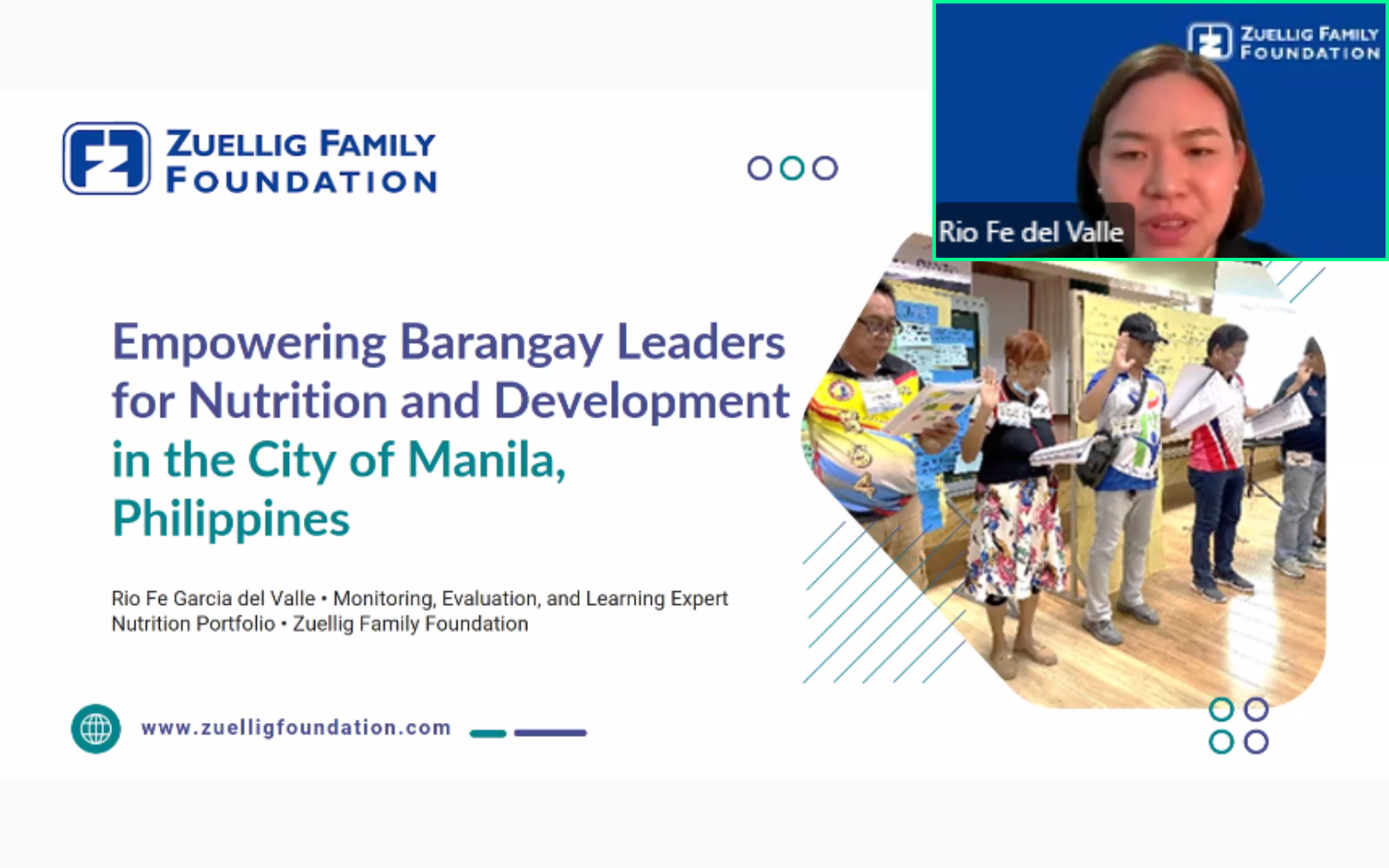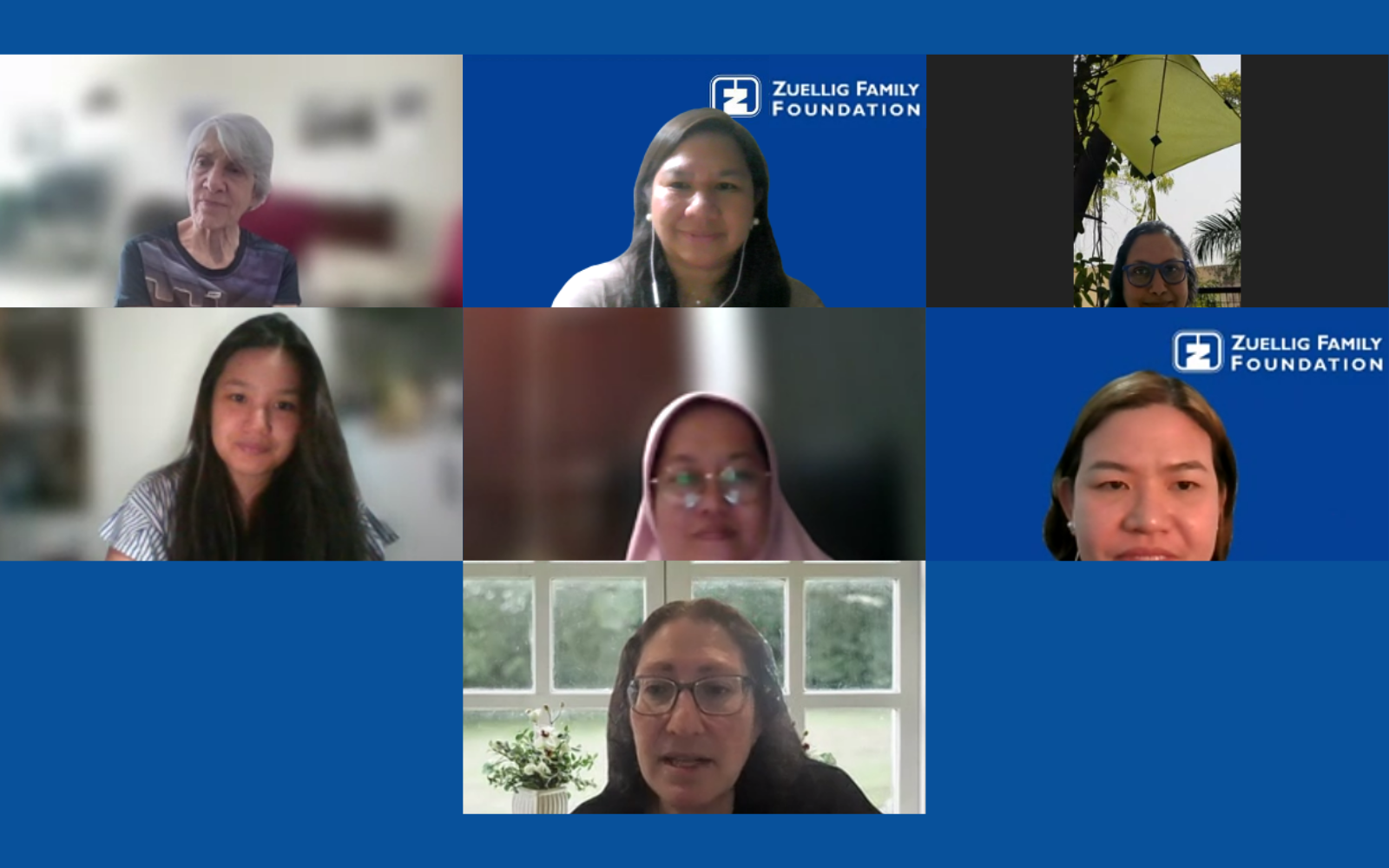Empowering Grassroots Nutrition Leadership: ZFF at the IAAND Global Conference 2025
News

At this year’s International Affiliate of the Academy of Nutrition and Dietetics (IAAND) Global Conference, the Zuellig Family Foundation (ZFF) shared a powerful story—one that puts local leadership at the center of solving malnutrition.
Held virtually from April 2 to 9, 2025, the conference gathered nutrition professionals from around the world to discuss the theme: Building Global Nutrition and Dietetics Workforce Capacity. Topics ranged from sustainable food systems to clinical nutrition, and leadership development was a key highlight—right where ZFF’s work in Manila took the spotlight.
ZFF’s Barangay Leadership for Nutrition and Development (BL4ND) program was one of five entries from its Nutrition Portfolio accepted into the conference. Among these, one was selected for oral presentation, delivered by Rio Fe Del Valle, Monitoring and Evaluation Learning Expert at ZFF. Her talk focused on how empowering local barangay leaders creates long-lasting improvements in nutrition systems.
A Closer Look at Manila’s Nutrition Challenges
Rio’s presentation zoomed in on the city of Manila—an urban jungle of over 1.8 million people and one of the most densely populated cities in the world. Malnutrition here is a growing concern: 18% of children are stunted and 6% are wasted, based on 2022 data. But that is just the tip of the iceberg—only 39% of children were even assessed that year through Operation Timbang (OPT) Plus. While there was some progress in 2023, challenges remain.
To address this, ZFF partnered with the Manila City Health Department and Samaritan’s Purse-Philippines to roll out the BL4ND program. Over six months, the program trained and supported local leaders in five pilot barangays to build better systems for nutrition governance guided by ZFF’s Health Change Model.
Results You Can See
By the end of the training period, all five barangays showed significant improvements—at least 59% based on ZFF’s nutrition systems assessment tool. The change was not just in data, but was visible in real actions:
- Functional Barangay Nutrition Committees were set up or revitalized
- Barangay Nutrition Action Plans were developed
- Budgets for nutrition programs were secured
- Barangay Nutrition Action Officers were officially designated
- Nutrition tools and equipment were purchased
- Feeding programs and vitamin distributions took off
- Child growth monitoring coverage improved
- Awareness campaigns and community activities boosted demand for nutrition services
More than numbers, these are proof that when local leaders are empowered, they can take real steps toward healthier communities.
ZFF Among Global Voices
ZFF’s oral presentation was in good company. The conference featured a small group of selected speakers tackling some of the most pressing issues in global nutrition. The oral presentations included:
- Ilonah B. Pomay, MSCN, RDN (Philippines) – Nutrient Intake and Wound Healing Status of Adult ICU Patients with Pressure Injury at a Tertiary Hospital
- Carlos Ordóñez Rosero (Ecuador) – Gut Microbiota of Children at Risk of Malnutrition Show Depletion in Butyricimonas
- Tatyana El-Kour, PhD, MA, MS, RDN, FAND (Jordan) – Adapting AI from Various Sectors to Strengthen Nutrition and Dietetics Workforce Capacity
Each speaker offered a unique lens on how systems, science, and leadership can work together to address different nutrition challenges worldwide.
Global Connections and Learning

ZFF’s team also joined educational sessions and engaged in virtual networking with professionals from different regions and practice areas. In the Asia breakout room, conversations sparked ideas on how grassroots leadership models—like BL4ND—could be adapted in neighboring countries.
For some attendees, this was their first encounter with ZFF’s work, and it struck a chord. Many appreciated how the Foundation goes beyond traditional program delivery and works to strengthen systems through local governance and leadership development.
Why Local Leadership Matters
More than anything, the conference reinforced one key idea: real change in nutrition starts in the community. When local leaders have the tools, support, and space to lead, they can drive lasting improvements that go beyond short-term fixes.
ZFF’s work in Manila is just one example of what is possible when leadership, collaboration, and community come together. And as more cities and barangays join this movement, the hope is that more children will grow up healthier—and communities will be better equipped to make that happen.